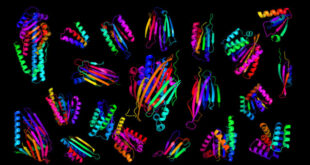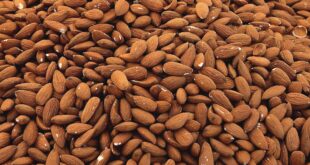A large prospective cohort study of a half million people in the United Kingdom has found inverse associations for coffee drinking with mortality, including among participants drinking 1 up to 8 or more cups per day, in both slow and fast metabolizers of caffeine, and in drinkers of ground, instant and decaffeinated coffee.
Loftfield et al confirmed previous studies showing an inverse association between coffee drinking and mortality and found similar associations in participants with genetic variants conveying both faster and slower caffeine metabolism. Image credit: Stock Snap.
Coffee is popular around the world and studies have generally reported inverse associations (moving in opposite directions) between its consumption and the risk of chronic diseases and mortality.
But what about heavy coffee drinking and people with genetic variations that can affect how they metabolize caffeine?
“The rapidity of caffeine metabolism varies substantially between people,” said Dr. Erikka Loftfield of the Division of Cancer Epidemiology and Genetics at the National Cancer Institute and her colleagues from Northwestern University, Chicago, and the National Cancer Institute.
“Prior data from case-control studies had suggested that coffee drinking may increase the risk of hypertension and myocardial infarction among individuals with genetic variants indicating slower caffeine metabolism.”
“However, these prior studies assessed coffee drinking after disease occurrence and did not examine overall or cardiovascular disease mortality.”
Dr. Loftfield and co-authors evaluated the coffee-drinking habits of 502,641 people, using demographic, lifestyle, and genetic data from the UK Biobank.
“The UK Biobank is a population-based study that invited approximately 9.2 million individuals from across the United Kingdom to participate,” they explained.
“We used baseline demographic, lifestyle, and genetic data form the UK Biobank cohort, with follow-up beginning in 2006 and ending in 2016, to estimate hazard ratios for coffee intake and mortality.”
“We investigated potential effect modification by caffeine metabolism, defined by a genetic score of previously identified polymorphisms in AHR, CYP1A2, CYP2A6, and POR that have an effect on caffeine metabolism.”
Coffee drinking participants were less likely to die of cardiovascular disease and cancer than non-drinkers.
Similar findings were observed for participants drinking ground, instant, and decaffeinated coffee.
“All together, these findings suggest that inverse associations between coffee and mortality may be attributable to non-caffeine constituents and may provide reassurance to coffee drinkers,” the researchers said.
“Further research is needed to understand the mechanisms underlying the observed associations.”
The results appear in the journal JAMA Internal Medicine.
_____
Erikka Loftfield et al. Association of Coffee Drinking With Mortality by Genetic Variation in Caffeine Metabolism. Findings From the UK Biobank. JAMA Intern Med, published online July 2, 2018; doi: 10.1001/jamainternmed.2018.2425
 #Bizwhiznetwork.com Innovation ΛI |Technology News
#Bizwhiznetwork.com Innovation ΛI |Technology News




